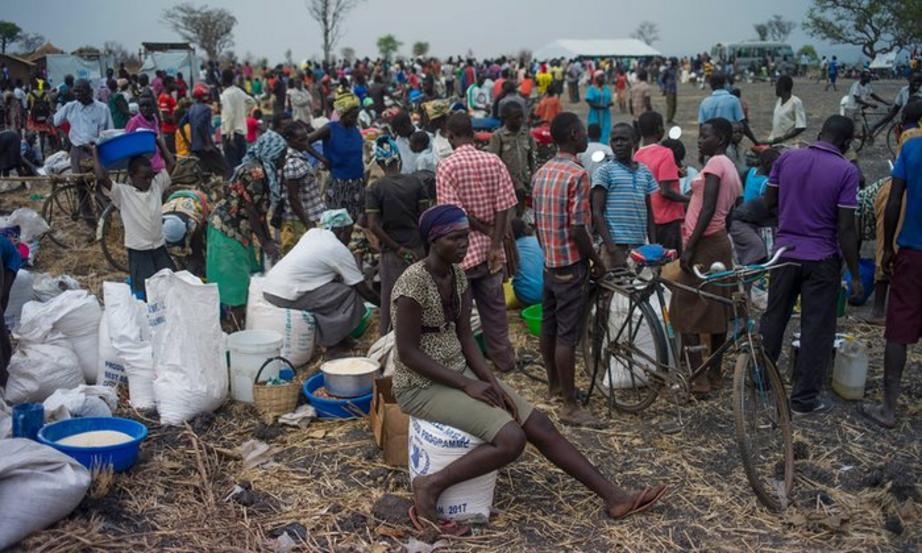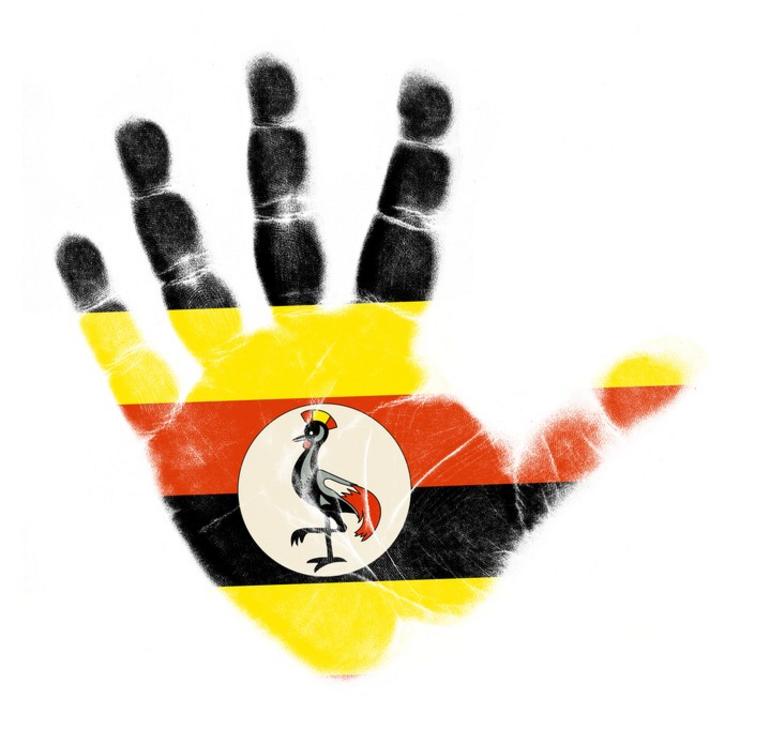Uganda at breaking point as Bidi Bidi becomes world's largest refugee camp
A compassionate refugee policy has led Uganda to welcome 800,000 people escaping conflict and famine in South Sudan. But the strain is starting to show.
 Refugees gather at a settlement in Palorinya, northern Uganda. In March, 2,800 people arrived in Uganda every day from South Sudan.
Refugees gather at a settlement in Palorinya, northern Uganda. In March, 2,800 people arrived in Uganda every day from South Sudan.
The central reception area of the Imvepi refugee settlement, in northern Uganda, is packed to the brim. Thousands of people are crammed into a patch of land meant to hold just a fraction of the current load. They’ve been waiting for days, stuck in an administrative backlog the government of Uganda attributes to lack of funding and an unceasing stream of people from South Sudan.
Famine, economic collapse and years of fighting have forced people out of South Sudan faster than from any other nation on the planet. The stream of arrivals, who averaged 2,800 each day in March, has begun to take a toll on the country’s southern neighbour Uganda, host to roughly half of the 1.6 million people forced to flee their homes.
Uganda is feeling the neglect. The country has one of the world’s most compassionate refugee policies, which grants migrants land to build a home and enjoy rights to travel and work that are practically unheard of elsewhere.
But without relief in sight, the cracks are beginning to show. A single settlement, called Bidi Bidi, hosts at least 270,000 refugees – more than any other place in the world. It was closed to new arrivals in December to prevent overcrowding. Since then, new settlements have opened roughly every two months.
Initially, the UN expected roughly 300,000 South Sudanese refugees to come to Uganda in 2017. Just three months into the year, the estimate has risen to 400,000.
Filippo Grandi, the UN’s high commissioner for refugees, said Uganda was now “at breaking point”.
“Uganda has continued to maintain open borders,” said Ruhakana Rugunda, Uganda’s prime minister. “But this unprecedented mass influx is placing enormous strain on our public services and local infrastructure.”
At the border, where refugees wait for days to make their way through the system, the untenability is growing increasingly evident.
“The pace at which people are coming is faster than the rate at which we are registering, so there’s a backlog of unregistered persons,” said Solomon Osakan, an official with the Ugandan government. “Unfortunately, funding has also not been going at the pace at which refugees are arriving.”

